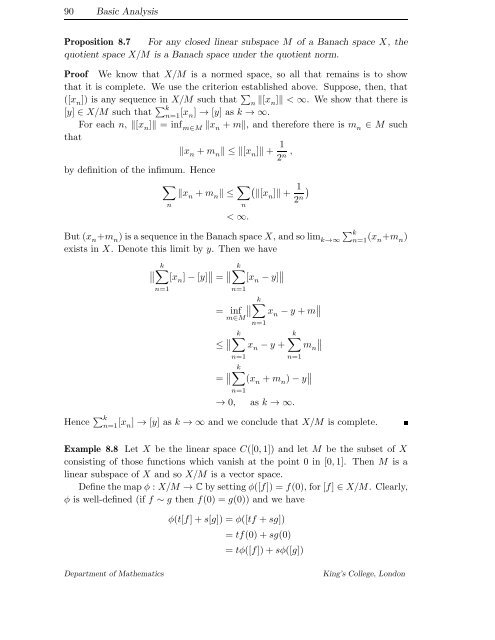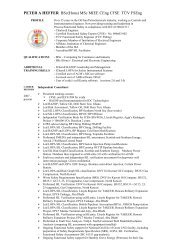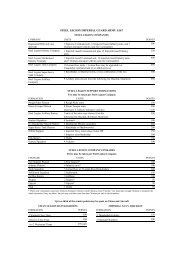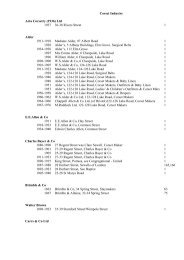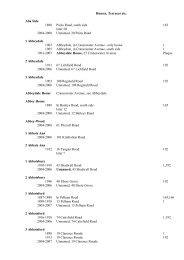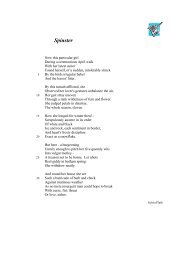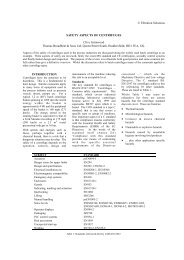Basic Analysis – Gently Done Topological Vector Spaces
Basic Analysis – Gently Done Topological Vector Spaces
Basic Analysis – Gently Done Topological Vector Spaces
You also want an ePaper? Increase the reach of your titles
YUMPU automatically turns print PDFs into web optimized ePapers that Google loves.
90 <strong>Basic</strong> <strong>Analysis</strong><br />
Proposition 8.7 For any closed linear subspace M of a Banach space X, the<br />
quotient space X/M is a Banach space under the quotient norm.<br />
Proof We know that X/M is a normed space, so all that remains is to show<br />
that it is complete. We use the criterion established above. Suppose, then, that<br />
([xn ]) is any sequence in X/M such that �<br />
n�[xn ]� < ∞. We show that there is<br />
[y] ∈ X/M such that �k n=1 [xn ] → [y] as k → ∞.<br />
For each n, �[xn ]� = infm∈M �xn + m�, and therefore there is mn ∈ M such<br />
that<br />
�xn +mn� ≤ �[xn ]�+ 1<br />
,<br />
2n by definition of the infimum. Hence<br />
�<br />
�xn +mn� ≤ ��<br />
�[xn ]�+ 1<br />
2n �<br />
n<br />
n<br />
< ∞.<br />
But(x n +m n )isasequenceintheBanachspaceX, andsolim k→∞<br />
exists in X. Denote this limit by y. Then we have<br />
�<br />
�<br />
k�<br />
[xn ]−[y] � �<br />
k�<br />
� = � [xn −y] � �<br />
n=1<br />
n=1<br />
�<br />
k�<br />
= inf � xn −y +m � �<br />
≤ � �<br />
= � �<br />
m∈M<br />
n=1<br />
k�<br />
xn −y +<br />
n=1<br />
k�<br />
n=1<br />
�<br />
m �<br />
n<br />
k�<br />
(xn +mn )−y � �<br />
n=1<br />
→ 0, as k → ∞.<br />
� k<br />
n=1 (x n +m n )<br />
Hence �k n=1 [xn ] → [y] as k → ∞ and we conclude that X/M is complete.<br />
Example 8.8 Let X be the linear space C([0,1]) and let M be the subset of X<br />
consisting of those functions which vanish at the point 0 in [0,1]. Then M is a<br />
linear subspace of X and so X/M is a vector space.<br />
Define themapφ : X/M → Cbysettingφ([f]) = f(0), for[f] ∈ X/M. Clearly,<br />
φ is well-defined (if f ∼ g then f(0) = g(0)) and we have<br />
φ(t[f]+s[g]) = φ([tf +sg])<br />
= tf(0)+sg(0)<br />
= tφ([f])+sφ([g])<br />
Department of Mathematics King’s College, London


